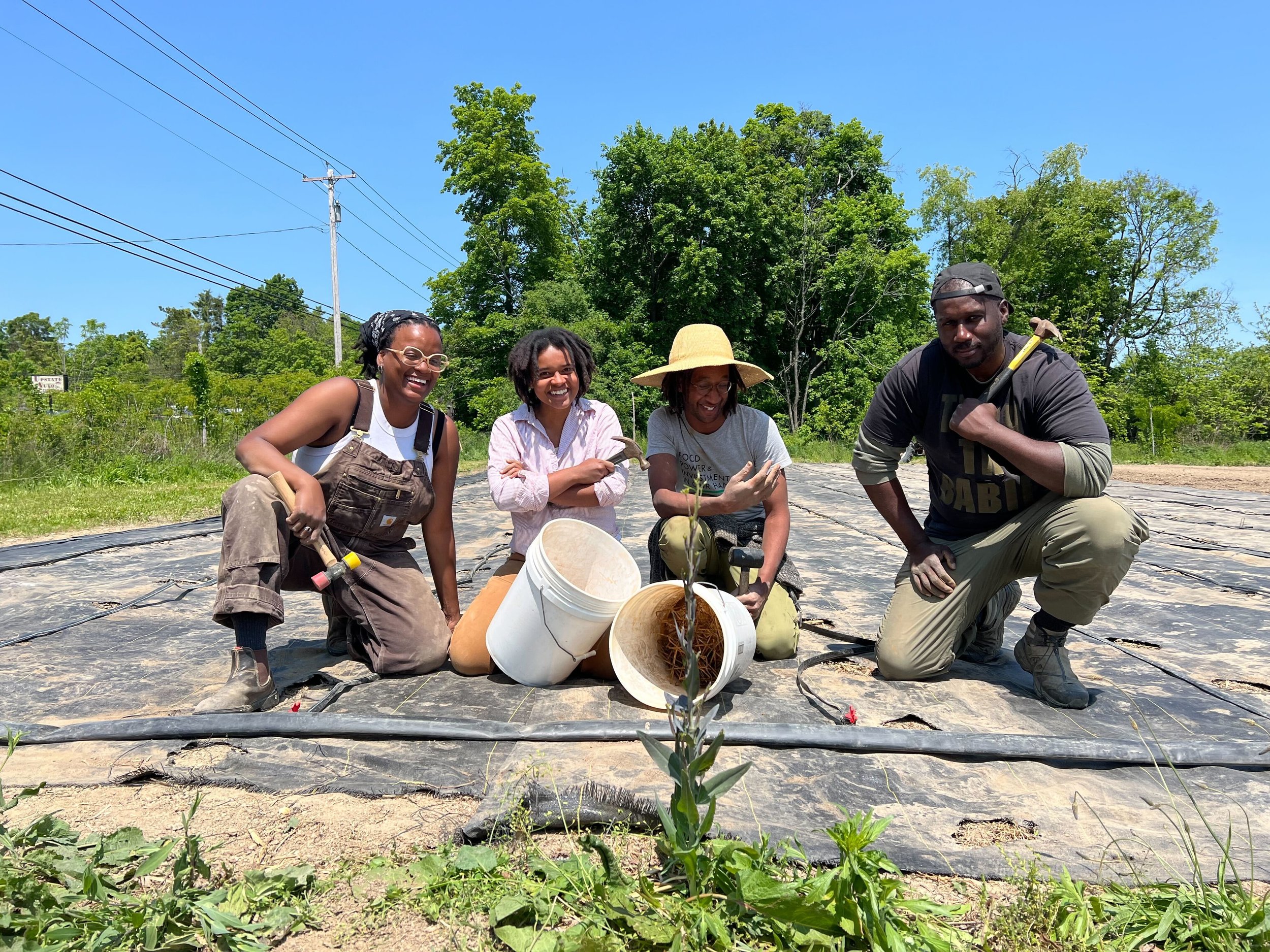WHAT WE DO
We grow food.
We grow culturally relevant, nutrient dense and organic food, abolitionist sugars, and cultivate landrace seed varieties. We're committed to regenerative agriculture that nurtures the land. Here’s a look at some of the sustainable farming techniques we’re practicing:
Low-Till Farming: We disturb the soil as little as possible to protect its structure and health.
Organic (Not Certified): Though we’re not officially certified organic, we adhere to organic principles, avoiding synthetic chemicals and focusing on natural, sustainable methods to grow healthy crops.
Minimal Spray: We use minimal pest control sprays and opt for natural solutions like diatomaceous earth and kaolin clay to protect our plants while preserving the health of the ecosystem.
Cover Cropping: To increase soil fertility and structure, we plant nitrogen-fixing legumes, peas, oats, and tillage radish. We also grow mustard as a natural biofumigant to suppress soil-borne pests.
Heritage Crops: By growing heritage crops like ethiopian mustard, collards, cabbage, tomatoes, eggplants, peppers, watermelon, and sweet potatoes, we’re helping to sustain cultural foodways and strengthen the bond between our farm and the communities we serve.
We get food to communities impacted by the prison industrial complex.
Our farm currently feeds 400+ justice impacted families through the Multicultural BRIDGE Program, Poughkeepsie food pantries like Dutchess Outreach, grassroots and mutual aid organizations (Columbia County Sanctuary Movement, Land In Black Hands); supplies food to and organizes, delivers, and distributes fresh produce at the free farm stand every third weekend of the month in front of the Sing Sing Correctional Facility with the Sing Sing Family Collective.
We host community on the land.
Our core team hosts regular community gatherings, including Second Saturdays with the Sweeties: Community Farm Days, Annual Sorghum Harvest and Maple Moon gathering where we connect with our project partners and neighbors. Through our shared time on the land, we center Black folks, and create space for our predominantly BIPOC community members to reconnect and strengthen relationship with the land.
We nourish Black farmers.
We are dedicated to nurturing Black farmers. Our majority-Black farm team is comprised of diverse levels of experience, and we function as a teaching farm, supporting the growth of young Black farmers. We provide hands-on training and support access to a broad range of professional development opportunities, including tractor training workshops, learning how to set up irrigation, greenhouse management, and more. One goal is to equip our farmers with a well-rounded farm education, so they are empowered to utilize this knowledge in their future agricultural goals.




